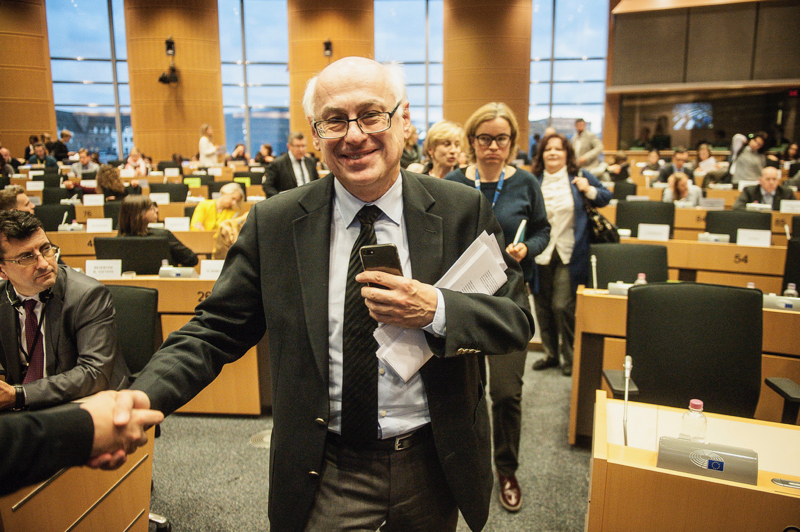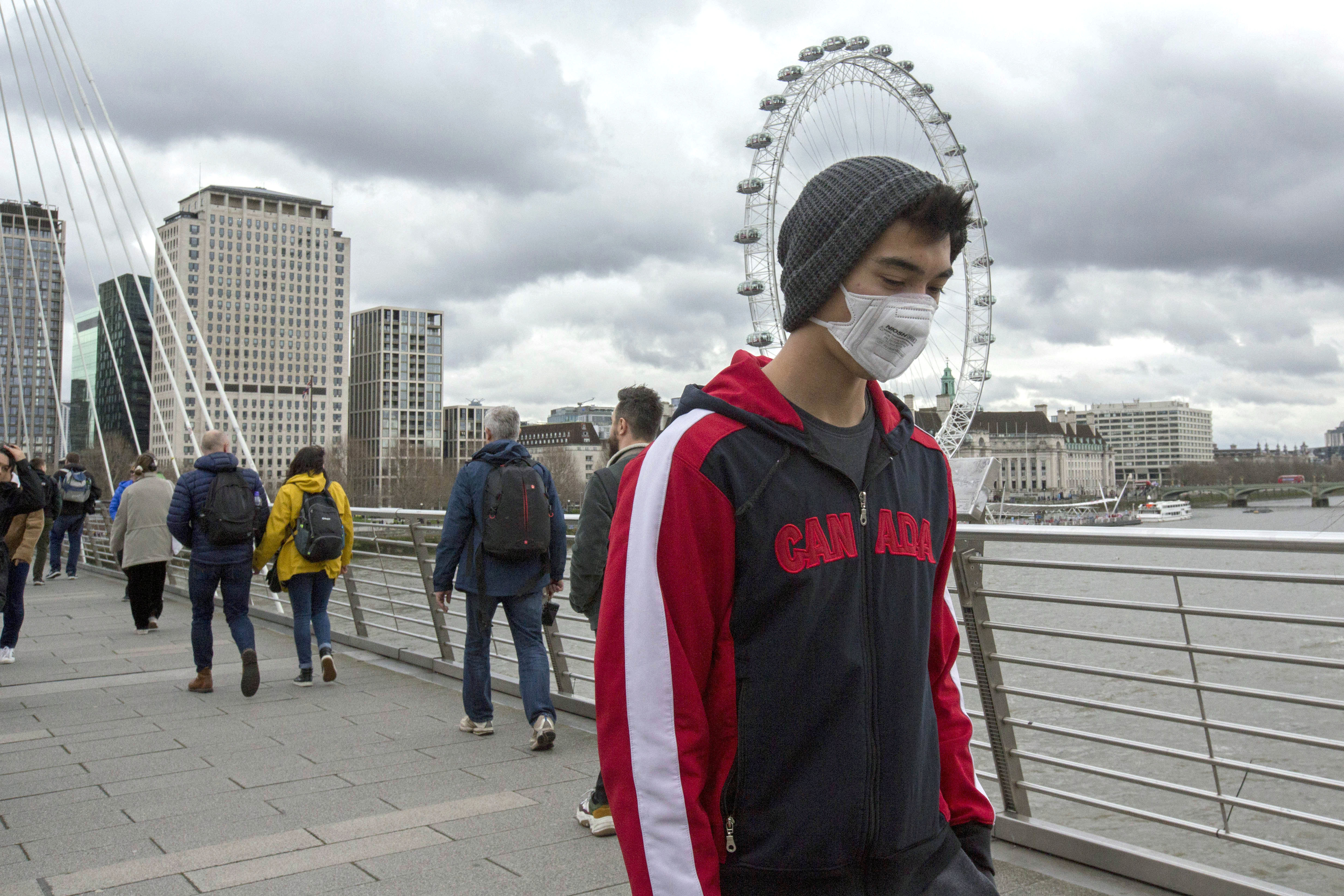Boris Johnson has earned himself some favourable points for his handling of the coronavirus crisis in the United Kingdom, not an easy thing to do considering that the British Government's approach is more than a little counter-intuitive. He has tied himself closely to following the advice of his experts.
That is to say they are not treating the spread of coronavirus as a war that must be won at all costs, as some other governments have done. Not just because this is a war they cannot win, but also because the goal is to create what is called "herd immunity" in the population, which happens when enough people have had the disease in a milder version, thereby building up anti-bodies in their bloodstream. At a certain point the virus will stop being transmitted person to person, as each person with immunity acts as a barrier to its further spread.
This contradicts most people's instinctive feeling that the single goal of government policy should be to prevent anyone getting the disease in the first place. If herd immunity is not achieved, and even if the incidence of new victims falls to a low figure, coronavirus is expected to be endemic in the population from now on. That means it will reappear at annual intervals just as influenza does. But its impact will be reduced by herd immunity.
The problem with this approach is that it is not an easy message to sell, particularly when it is combined with protecting the most vulnerable people from infection. The elderly and those with pre-existing conditions could become seriously ill. So the Government does not mind if young and healthy people get it, as long as they do not pass it on to their grandparents. It is a brave politician who is prepared to go along with this – necessarily mixed – message.
Such sophisticated thinking has not yet been heard in the United States, where Government rhetoric still seems to imply that the disease can be prevented totally. Donald Trump’s belated announcement of a state of emergency will not save him from being shown to have been woefully behind the curve.
The press conference in which he announced the state of emergency, thereby bypassing red rape in the release of federal funding, was hailed as a signal that at last he has realised the urgency of the situation. But states of emergency under the Stafford Act are regular events, usually associated with things like forest fires, and are therefore not as dramatic, or as decisive, as they might seem.
From a British or European perspective – one likely to be shared by many Americans – his defeat in November's Presidential election has become more likely as a result of coronavirus, which will be one of the very few benefits of the coronavirus epidemic which is only just starting to ravage the United States.
Given the likelihood of many thousands of deaths, it is a high price to pay. The United States is heading towards a catastrophic summer, that will challenge every political certainty. I will be happy to be contradicted by events, but the closest parallel I can image just now, given the prediction by experts of the huge number of expected deaths, would be nuclear war.
There is another death we should mark, however: a political one. Prompted by coronavirus and faced with little alternative, the British Conservative Government has finally killed off the last vestiges of Thatcherism, one of whose goals was to make the British economy more like the American one.
The budget announced this week turns its back decisively on the package of ideas associated with Margaret Thatcher's idol, Friedrich Hayek: that free market solutions were always to be preferred to State-directed ones, which were inherently totalitarian and oppressive of individual freedom. The smaller the share of national expenditure attributed to the State, said Hayek, the better. Thatcher believed passionately that individualistic self-reliance was always morally superior to collective action, even when directed towards the common good.
This idea, beloved of previous Tory Governments but at last relegated to the archives of political history, is still very much alive on the American right, and even among the mainstream. It lies at the root of the American instinctive rejection of national health schemes, branding them all as Socialism.
But it is not just that the Trump Administration's anti-virus efforts are seriously hampered by the absence of a universal right to health care and a universal right to statutory sick pay. His own lamentable performances on television, including a formal address from the White House, has made the impact of these structural problems several times worse. Public confidence in government is a crucial element in any comprehensive public health response, and that is low and getting lower.
The collapse of the stock market is likely more than anything else to harm Trump's chances of re-election, and is closely connected with this structural defect in the American system. Wall Street investors know very well that the United States is much less resilient to this kind of epidemic than many other countries, and it is precisely the lack of universal healthcare and universal sick pay that multiplies the impact on the economy of an epidemic like this one. The presence of more than ten million undocumented migrants, who fear deportation if their presence comes to the attention of the authorities, is a further public health headache.
So far from built-in resilience, there is built-in susceptibility. Coronavirus could almost have been designed with American vulnerability in mind. And the modest provision of sick pay for those who withdraw from the workforce during the epidemic falls a long way short of meeting the total need. As the disease spread, so will poverty, each factor aggravating the other.
The American philosophy of self-reliance will not help, as combatting the spread of the virus requires each individual to prioritise not his or her own interests but those of others. Self-isolating and reporting sick, regular hand washing, not coughing and sneezing into air that other people have to breath, and so on, bring no advantage at all to the individual concerned, who may indeed be a seriously inconvenienced as a result.
The archetypal American response to any proposal for the sort of national health service that the rest of the Western world takes for granted, has been, in the words of one man interviewed on television, "Why should I have to pay the medical bills of someone else?" Now he has his answer. Other people's untreated sickness is a serious threat to his health too. He will have to learn the meaning of solidarity the hard way.
Mr Trump's Democratic opponent, whether he be Joe Biden or Bernie Sanders, now has a mighty gust of wind in his sails, and would be well advised to take maximum advantage of the moment. Comprehensive tax-payer funded healthcare for everyone has become an imperative.
Not that it wasn't always. Compared with other OECD countries, the USA, with by far the world's largest economy, ranks a disgraceful 33rd out of 36 in infant mortality. Coronavirus may kill legions of older people, but if it provokes a change of heart in the American public regarding "socialised medicine", it may ultimately save the lives of legions of new-born babies. It is an ill wind...



 Loading ...
Loading ...
What do you think?
You can post as a subscriber user ...
User comments (0)